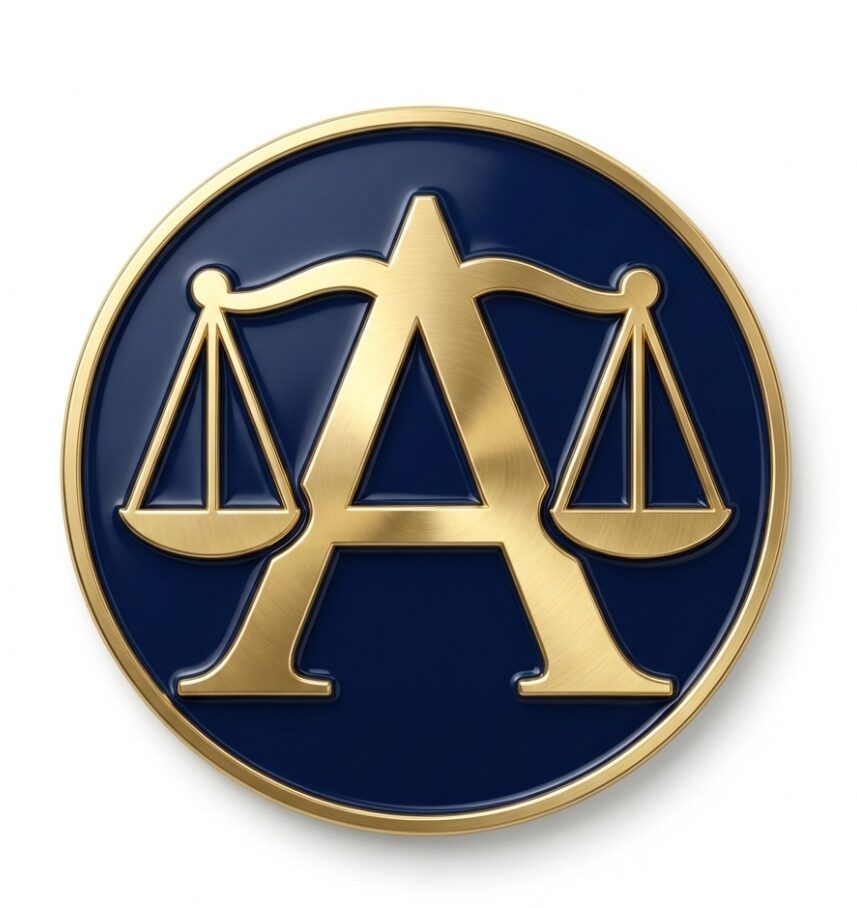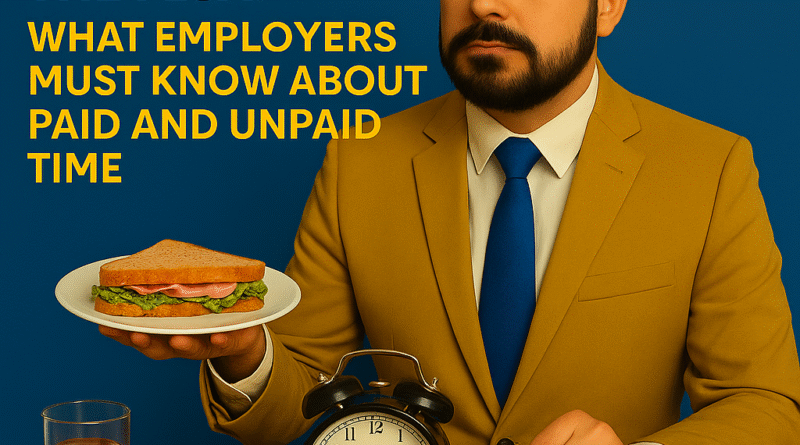Meal and Rest Breaks Under the FLSA: What Employers Must Know About Paid and Unpaid Time
Meal and rest breaks are an essential component of workplace compliance and employee well-being. While the Fair Labor Standards Act (FLSA) sets the federal baseline for compensable work hours, it does not require employers to provide meal or rest breaks. However, once an employer chooses to offer them, or when state law mandates them, the FLSA and the Department of Labor (DOL) enforce specific compensation rules. This article analyzes how federal regulations interact with company policies and state laws, highlighting key compliance risks and best practices.
Understanding Federal Rules on Breaks
The FLSA does not require employers to provide meal or rest breaks. However, the DOL has issued interpretive guidance under 29 C.F.R. §785.18–19 to determine whether break time is compensable. The core principle is simple: short breaks must be paid; longer meal periods may be unpaid, provided the employee is completely relieved of duties.
- Short rest breaks (5–20 minutes): considered compensable work time and must be paid.
- Meal periods (30+ minutes): can be unpaid only if the employee is fully relieved from work duties.
- Interrupted meal breaks: become compensable if the employee performs any job-related activity, even for a few minutes.
- Remote employees: must be able to disconnect fully from work systems during unpaid breaks.
Employer Policy and Practice
Even without a federal mandate, most employers establish internal policies governing rest and meal breaks to reduce fatigue and improve productivity. However, inconsistencies between policy and practice can expose organizations to wage and hour violations. Policies should explicitly define when breaks are paid, unpaid, or interrupted, and managers must be trained to enforce them consistently.
- Automated time clocks must accurately capture break start and end times.
- Supervisors should avoid assigning tasks during unpaid meal periods.
- Employees should not be discouraged from taking legally entitled breaks.
- Employers must keep accurate timekeeping records to prevent FLSA claims.
State Laws: Stricter Standards Prevail
Many states impose their own break requirements that go beyond federal rules. When both apply, the stricter standard governs. For instance:
- California: Requires a 30-minute unpaid meal break for every 5 hours worked and a paid 10-minute rest break for every 4 hours. Missed breaks trigger an additional hour of pay (“premium pay”).
- New York: Mandates meal periods based on shift length; additional rest breaks may be required under collective bargaining agreements.
- Washington State: Requires both meal and rest breaks, with meal periods after 5 hours and rest breaks every 4 hours.
- Illinois, Oregon, Colorado, and Massachusetts: Have specific break laws for certain industries (retail, food service, healthcare).
Handling Remote and Hybrid Workers
For remote employees, tracking breaks becomes more complex. Employers should require electronic attestation for breaks and use time-tracking systems that log idle activity or mouse/keyboard inactivity. However, privacy and surveillance rules must be respected.
- Encourage employees to block breaks on digital calendars.
- Pay for all interruptions like calls, emails, or chat replies during breaks.
- Define clear expectations for “availability” vs. “work hours.”
Break Violations and Penalties
FLSA enforcement actions commonly arise when companies auto-deduct meal breaks but require employees to stay “on call.” Courts treat such situations as compensable work. Employers may owe back pay, liquidated damages, and attorney fees for repeated violations.
In California, penalties are even higher: one hour of premium pay per missed meal or rest period, per day. Repeat violations can also lead to civil penalties under the Private Attorneys General Act (PAGA).
- Adopt a written break policy consistent with federal and state rules.
- Conduct quarterly audits of time records and employee feedback.
- Train supervisors to avoid interrupting breaks for “quick questions.”
- Offer flexibility: microbreaks (5 minutes) can boost compliance and wellness.
Conclusion
While the FLSA sets a minimum framework, state law and company policy determine the real-world treatment of meal and rest breaks. Employers must stay proactive: ensure documentation, train managers, and regularly audit practices. A single missed break across hundreds of employees can lead to substantial back pay liability. Prevention through clarity, consistency, and compliance is the most cost-effective defense.
Quick Guide — Meal and Rest Breaks Under the FLSA
- Federal Rule: The FLSA does not require breaks but regulates pay for those provided.
- Paid Breaks: Short breaks (5–20 minutes) must be compensated.
- Unpaid Breaks: Meal periods (30+ minutes) are unpaid only when employees are fully relieved of duties.
- Interrupted Meals: Any interruption turns the break into paid time.
- State Laws: Stricter state rules override federal guidelines (e.g., California, New York).
- Recordkeeping: Employers must document all breaks and avoid automatic deductions.
- Remote Work: Employers must ensure remote employees can take uninterrupted breaks.
FAQ
Are employers required by federal law to give meal or rest breaks?
No. The FLSA does not mandate breaks. However, if an employer provides them, federal rules determine whether they are paid or unpaid.
What defines a compensable break under the FLSA?
Short rest breaks between 5 and 20 minutes must be paid. Meal breaks lasting at least 30 minutes can be unpaid only if the worker is fully relieved from duty.
Can employers automatically deduct 30 minutes for lunch?
Only if the employee is genuinely relieved of all work duties. Automatic deductions without monitoring can violate the FLSA.
Further reading:
What happens if a meal break is interrupted by work duties?
If the employee performs any work—answering calls, assisting customers, or checking emails—the entire break must be paid.
How do state laws differ from federal rules?
Some states, such as California and Washington, require specific meal and rest periods. Employers must always apply the stricter rule.
Are remote employees entitled to meal breaks?
Yes. Remote workers must be allowed to take uninterrupted breaks and should not perform tasks like answering messages during that time.
What are the consequences of violating break laws?
Employers may owe back pay, overtime, and penalties. In states like California, missed breaks can trigger “premium pay” equal to one hour of wages per violation.
Regulatory Foundations
- Fair Labor Standards Act (FLSA) — 29 U.S.C. § 201 et seq.
- Department of Labor Regulation — 29 C.F.R. §§ 785.18–785.19 (compensable break time rules).
- State Laws — California Labor Code §512; Washington Admin. Code 296-126-092; New York Labor Law §162.
- Case Law — Bernard v. IBP, Inc. (8th Cir. 2000); Busk v. Integrity Staffing Solutions (U.S. Supreme Court, 2014).
- Wage and Hour Division (WHD) — Field Operations Handbook, Chapter 31b.
Final Considerations
Meal and rest break compliance is not just a payroll issue—it directly affects worker well-being and employer liability. By following the FLSA framework, applying stricter state rules, and maintaining accurate records, businesses ensure both compliance and workplace fairness.
These insights are for informational purposes and do not replace guidance from a qualified employment law professional.

